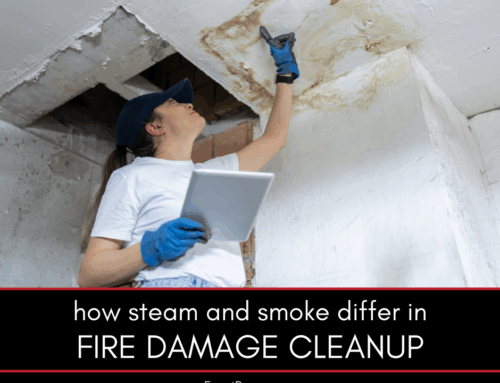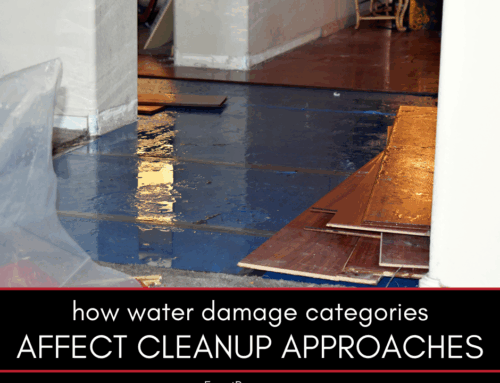Water damage can strike unexpectedly, whether from a burst pipe, flooding, or an overflowing appliance. While it may be tempting to delay action, immediate response is critical to minimize damage, prevent mold growth, and ensure your home remains safe. This guide explains why acting quickly after water damage is essential.
Why You Need to Act Immediately After Water Damage
Taking swift action after water damage can prevent long-term problems and save you money. This guide covers:
- How water damage spreads quickly
- The risk of mold growth
- Structural damage caused by prolonged water exposure
- Health risks associated with untreated water damage
- The importance of professional restoration services
Here’s a closer look at each.
How Water Damage Spreads Quickly
Water has a remarkable ability to spread rapidly, seeping into every crevice and porous material it encounters. Within minutes of a water intrusion, carpets, upholstery, and drywall begin to absorb moisture. Left unchecked, water can travel through flooring, walls, and ceilings, reaching areas far from the original source. This can cause hidden damage that isn’t immediately visible but may compromise your home’s structural integrity over time.
Immediate action, such as shutting off the water source and removing standing water, helps to limit the extent of the damage. The faster you act, the easier it is to prevent water from infiltrating hard-to-reach areas that require costly repairs.
The Risk of Mold Growth
Mold thrives in damp environments, making water-damaged areas the perfect breeding ground. Mold can begin to grow within 24 to 48 hours after water exposure, especially in warm or humid conditions. Once established, mold spreads quickly, releasing spores into the air and contaminating other areas of your home.
Mold not only causes further structural damage by weakening wood and drywall but also poses significant health risks. It can trigger allergies, asthma, and respiratory issues, particularly in vulnerable individuals such as children, the elderly, and those with compromised immune systems. Addressing water damage immediately is the most effective way to prevent mold growth and the associated complications.
Structural Damage Caused by Prolonged Water Exposure
Prolonged exposure to water can compromise the structural integrity of your home. Wooden beams and framing absorb moisture, leading to swelling, warping, and rot. Drywall and plaster lose their strength and may sag or crumble, while flooring materials like laminate and hardwood can buckle or delaminate.
Water damage to your home’s foundation is particularly concerning. When water seeps into cracks or beneath the foundation, it can erode the soil, causing uneven settling and structural instability. These issues can be costly to repair and may even render your home unsafe if not addressed promptly.
Health Risks Associated With Untreated Water Damage
Untreated water damage creates an environment conducive to the growth of bacteria, mold, and other harmful microorganisms. Contaminated water, such as from sewage backups or flooding, introduces additional risks, including exposure to pathogens that cause gastrointestinal illnesses, skin infections, and more.
Even clean water from a burst pipe can degrade into “gray water” or “black water” over time, posing health risks to anyone who comes into contact with it. Acting quickly to remove water and sanitize affected areas is essential for safeguarding your family’s health.
The Importance of Professional Restoration Services
While DIY cleanup efforts may address surface-level water damage, professional restoration services are often necessary to ensure thorough remediation. Experts use advanced tools, such as moisture meters and thermal imaging, to identify hidden water and assess the full extent of the damage. Specialized equipment like industrial-grade dehumidifiers and air movers helps dry out your home quickly and effectively.
At Exact Recon, we understand the urgency of water damage restoration. Our team responds quickly to mitigate damage, prevent mold growth, and restore your home to its pre-damage condition. We work directly with your insurance company to simplify the claims process, ensuring you get the support you need during a stressful time.
FAQ About Acting Quickly After Water Damage
Check out these commonly asked questions about responding to water damage. If you don’t see your question here, please call our office and we’ll find you the answers you need.
How Soon Should I Address Water Damage?
Water damage should be addressed immediately. Waiting even a few hours can allow the damage to spread and increase the risk of mold growth and structural issues.
Can I Handle Water Damage Cleanup Myself?
While small spills can often be managed with DIY methods, significant water damage requires professional equipment and expertise to ensure thorough drying and remediation.
What Are the Signs of Hidden Water Damage?
Signs include discoloration on walls or ceilings, a musty odor, warped flooring, and an increase in humidity levels. Professional inspection tools can detect hidden moisture.
How Can I Prevent Mold Growth After Water Damage?
Act quickly to remove standing water and dry affected areas. Using dehumidifiers and ensuring proper ventilation can help, but professional restoration is the most reliable way to prevent mold.
Does Homeowner’s Insurance Cover Water Damage?
Most homeowner’s insurance policies cover sudden and accidental water damage, such as from burst pipes. However, gradual damage or flooding may require additional coverage. Check your policy for details.
Acting immediately after water damage can make all the difference in protecting your home and ensuring a safe environment for your family. By addressing the damage quickly and working with professionals like Exact Recon, you can minimize costs and restore your home with confidence.
Do You Need a Disaster Remediation Expert in Washtenaw County or Jackson County?
If your home has already been damaged, we can help. Check out our services and get a free disaster remediation quote today. We offer:
- Water damage restoration
- Fire damage restoration
- Mold removal and remediation
- Fire and smoke restoration
- Sewer cleanup and disinfecting
- Reconstruction
- Wind and storm damage repair









